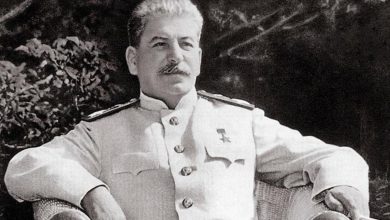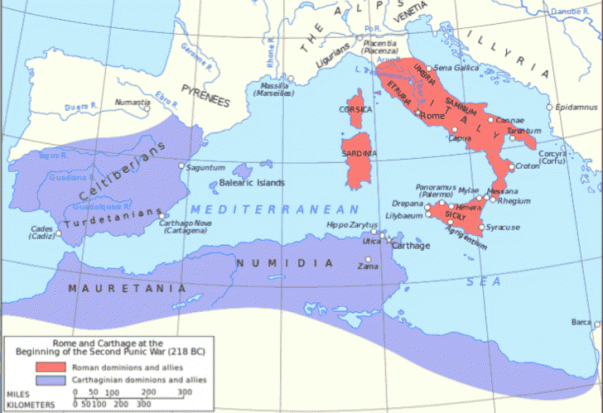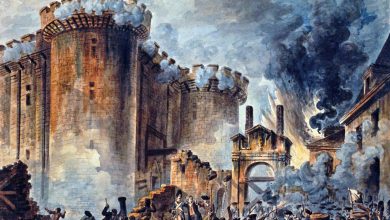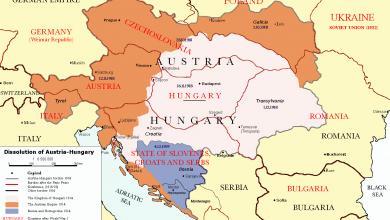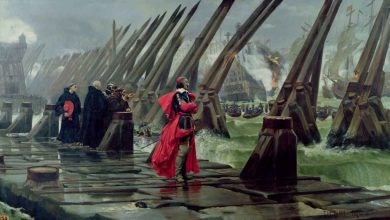Zoran Đinđić: the story of the Serbian Kennedy

Although not well known across Europe, Dr. Zoran Đinđić is probably one of the most important and emblematic politicians in the history of the young Republic of Serbia. During his life, he was one of the main opponents of Slobodan Milošević and one of the artisans of his overthrow in October 2000. During his two years and a half term as Prime Minister, he was the one who gave hope to an exhausted population with his charisma, his ideas and his will to fully re-establish the rule of law and democracy in Serbia.
His party and him were the first to launch the idea of an adhesion of Serbia and Montenegro (officially the State Union of Serbia and Montenegro) to the European Union. His dramatic and brutal assassination in 2003 left an empty space in Serbian politics, a space which remains empty to this day. The lack of charismatic, strong-willed and dedicated leaders is one of the reasons why Serbian political life today is crippled. Zoran Đinđić once represented hope for an entire generation, one fresh out of a war and shouting for democracy.
Early life
Zoran Đinđić was born in 1952 in the Socialist Republic of Bosnia and Herzegovina, one of the constituent republics within the Socialist Federal Republic of Yugoslavia. His father was part of the Yugoslav People Army and his mother was a housewife. Soon after his birth, his family moved to Belgrade, capital of Yugoslavia. Đinđić was raised there, maturing over time a strong interest in philosophy and politics. Although Yugoslavia was freer than any of the countries of the Warsaw Pact, these interests still had the potential to be dangerous in such an autocratic state.
In the Seventies, he enrolled in Belgrade Faculty of Philosophy and depicted himself as a “reformist and democratic socialist”. His attempts to form an independent Students’ Union at his university were met with strong disapproval by the regime, which resulted in a conviction by the communist authorities. This contributed to his decision to emigrate to West Germany after graduating from the Belgrade faculty in 1974.

He obtained a Ph.D. in Philosophy from Konstanz university in 1979, and stayed in Germany for a decade before returning to Yugoslavia. Eventually, he took up a philosophy chair in the University of Novi Sad in 1989. The year of his return corresponded to the sudden resurgence of multipartism in a crumbling Yugoslavia. The political landscape of the Nineties’ Yugoslavia was incredibly troubled. Even though there were regular formal elections, Milošević and his Socialist Party of Serbia (SPS) were meddling with electoral results, manipulating results and trying to intimidate opponents. Đinđić saw the chance for change and took it: in December of the same year he founded, together with other opponents of the regime, the liberal Democratic Party (Demokratska Stranka in Serbian). It was the first opposition and non-communist party to exist in the country, a true upheaval in the Yugoslav political sphere.
The year 1990 would sign the beginning of his budding career: Đinđić got elected to the Serbian Parliament and his party’s Executive Board Chairman. The party split only two years later, in 1992, with the more right-wing elements deciding to leave and found the Democratic Party of Serbia under the guide of Vojislav Koštunica. This split would prove to be a blessing in disguise for Đinđić’s political career, allowing him to gain leadership of the Democratic Party in 1994.
The political springboard
Đinđić’s political career truly started in 1995, when he got re-elected as the head of the Demokratska Stranka and his party expelled all of the members who looked favorably to the Socialist Party of Serbia, the ruling party. The opposition to Milošević effectively started to become stronger and more organised. During the 1996 municipal elections, the Democratic Party and Đinđić formed into a coalition with other opposition parties and attacked one of the strongholds of the regime: Belgrade’s town hall.
Zoran Đinđić was elected as Belgrade’s new mayor at the end of 1996, and two others major cities in Serbia fell into the hands of the opposition thanks to his campaigning: Novi Sad and Niš. Milošević and his government initially refused to acknowledge the results of the election, leading to the first wave of protests from an exhausted. Losing popularity at a worrying rate and under pressure both from citizens and from the international community, Milošević eventually stepped aside and allowed Đinđić to take his place in Belgrade’s town hall. At this time, Đinđić’s popularity truly started growing, and the parts of the population in disagreement with the government began to view him as the one who would bring change and hope to Serbia, after a series of crises in the Eighties.

The Democratic Party, under his recommendation, decided to boycott the upcoming 1997 parliamentary election. Unfortunately for Đinđić, such a move caused a rift in the coalition which had allowed him to be elected to mayor in the first place. Seeing the internal disagreements in the coalition, he SPS took this as an opportunity to vote out the dangerous opponent. In September 1997, Đinđić was voted out of his position. Nevertheless, this short term as Belgrade mayor once again increased the popular support towards him and the Democratic Party, mostly thanks to the perceived “eviction” by the regime.
Some months later, in February 1998, the troubles in Kosovo between the Kosovo Liberation Army (KLA), the armed wing of Kosovars independentists and Serbian forces lead to the beginning of Kosovo War, the last war in the Balkans. Đinđić, together with many other opposition members, condemned Belgrade’s intervention and stood firmly against the crimes committed on the ethnic Albanian population, as well as those of the KLA on Serbian civilians.
This vocal opposition posed a significant threat to Milošević, who was trying at this time to reinforce his legitimacy by taking down his opponents by having his secret services assassinate them. As the war was raging and NATO began to strike Yugoslavia in the optic of forcing them to withdraw from Kosovo, Slavko Ćuruvija, an anti-Milošević journalist and friend of Đinđić, was brutally murdered in April 1999, during Orthodox Easter. Learning that he, too, was on the brink of being assassinated by the regime’s secret services, Đinđić left Serbia and sought shelter in Montenegro.
The return to Serbia
The end of Kosovo war in June 1999 saw a traumatized population and a country going through a hyper-inflation because of the sanctions. Đinđić returned to Serbia in July 1999, in a country angry against its President and craving change. Most of the opposition leaders began to understand the need to oust Milošević.
With the country facing an unstoppable political unrest, protests and new parties challenging him. Milošević announced anticipated presidential and parliamentary elections in 2000. This decision led to the creation of the Democratic Opposition of Serbia (DOS) in January 2000, mainly led by Đinđić’s Democratic Party and the Democratic Party of Serbia headed by his rival, Vojislav Koštunica.
The anticipated elections would give way to the so-called Bulldozer Revolution, which would force Milošević out of power and see Koštunica elected as new Yugoslavian President. The legislative election saw the DOS, winning approximatively 65% of the votes, leaving the Socialist Party of Serbia in the dust. Zoran Đinđić, being the DOS’ candidate for the post of Prime Minister, saw himself catapulted into one of the highest offices of the country.
A new Prime Minister for Serbia
Zoran Đinđić was sworn in as Serbian Prime Minister in January 2001. He immediately announced the complete cooperation of the Serbian government with the International Criminal Tribunal for the former Yugoslavia (ICTY). This would lead to the Democratic Party of Serbia led by Vojislav Koštunica disassociating from their coalition partner, since they didn’t agree with such a decision.
Serbia found itself in a difficult position, being embroiled into a deep economic crisis. The new government’s priorities under Đinđić were to revitalise the economy, fight corruption and to “invest fully in the youth.” He effectively believed that a freshly, newly educated generation raised into a free and democratic country would fully heal the wounds of Serbia and the Serbian people. He was known for being a man close of his people, and could be regularly found in the streets talking to citizens. He also moved around all the country visiting factories and schools, taking the time to talk to the people who were in front of him.

The Prime minister, alongside his party, had a strong and powerful Europhile rhetoric. He effectively claimed that Serbia had for goal its accession to the European Union. He called the EU Serbia’s “fresh air. A family of modern, democratic and developed countries”. This policy of drawing closer to the West also showed Serbia’s will to step away from Russia, its traditional and historic ally. Zoran Đinđić managed to attract global attention and admiration thanks to the reforms he implemented in his fight for a globalised and functional Serbia, as well as for his thirst for justice and democracy. However, the attention he attracted was not all positive.
Đinđić’s assassination
The government led by the Democratic Party had many enemies, both in the political arena and within underground criminal groups. The conservatives were against most of the reforms that the progressive Prime Minister was pushing in the Serbian Parliament. The relationship between Đinđić and President Koštunica had also become strained, although in the past the two had been allies in their fight against Milošević. Moreover, one of the priorities of the Prime Minister had been to prosecute all the war criminals and to tackle the issue of mafia groups in the country, which led to him becoming a target for many of these groups.
The hatred that he had started gathering with his actions led to several elimination attempts in the coming years. Realising that the constant attacks would eventually be successful, Đinđić predicted his own assassination just a few weeks before it happened and was quoted saying:
“If some people think they’ll stop the implementation of laws and reforms by removing me, then they are awfully mistaken, because I am not the system. The system will keep functioning and nobody will receive amnesty for committed crimes by removing one or two government officials.”
Zoran Đinđić was assassinated on the 12th March 2003, shot in the back by a sniper, affiliated to nationalist groups and the Zemun Clan, one of Belgrade’s mafia groups. He was 51 and had two young kids. Only a few days after his death – just a few days too late – the government finally enacted the “Operation Saber” to globally eradicate the mafia.

The country cried the death of the Prime Minister, especially the younger generation which Đinđić had inspired and given hope to. And yet, the shock and despair caused by such a tragic loss didn’t help Serbia at all and the consequences of the assassination of the Prime Minister are still there nowadays. The death of Đinđić was an enormous blow to the forming democracy and it showed the limits of his government. Without him, and without an energetic and charismatic leader, the rest of his government had trouble continuing the fast-paced reforms. The corruption came back in full-force, dramatically slowing Serbia’s progress towards democratisation.
A post- Đinđić Serbia
Serbia today is effectively a country that some would call a “jaded” country. The governments which followed Đinđić’s were crippled by corruption problems. Matters such as the unilateral declaration of independence of Kosovo also empowered nationalistic parties such as the Serbian Progressive Party (SNS), which have ruled Serbia since 2012 with autocratic means.
The incredible lack of interest in politics nowadays could be explained by the lack of charismatic and dedicated opponents. It is also clear that the SNS has no interest in letting an opposition grow, and is relying on the state-controlled media to harass independent journalists and opponents. Đinđić’s Democratic Party, once representing the hope of a generation, is now a small and corrupted party.
Nevertheless, democratic institutions in Serbia do exist and challenging the actual government seems possible. However, it can’t be done without people dedicating themselves to this task, as difficult as it is. Pragmatically speaking, the situation is in a better shape than the one just before the Bulldozer Revolution. The satirical candidate in the 2017 presidential election, “Beli” mocked the government intelligentsia was the candidate generally supported by the youth. Beli also is the godson of Zoran Đinđić, quite ironically.
Let’s hope that some members of the younger generations will try to take the torch of hope and progress, which was borne by men like Đinđić. The struggle is probably not over for Serbia, but the legacy of the ones who tried to make it achieve something great still lives, even though some are trying to stifle it. It can be revived.

